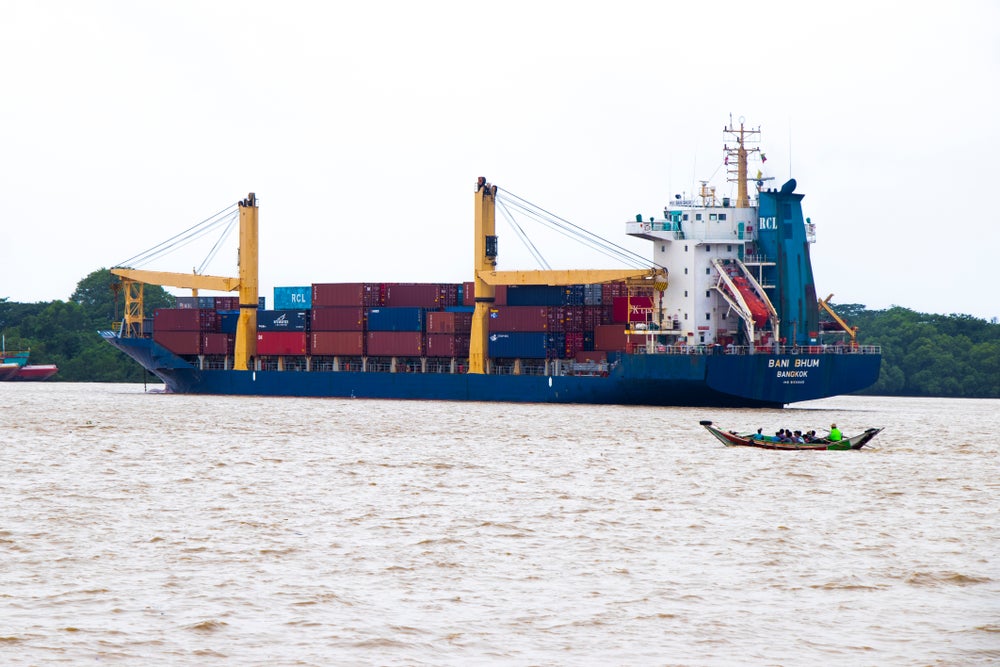
Compliance rates on core labour standards in Vietnam’s garment sector have significantly improved on last year – but violations continue to be found in areas such as worker protection, overtime and occupational safety and health.
Vietnam’s apparel industry accounts for about 15% of the country’s total exports, reaching more than US$36bn in 2018. The country now ranks among the top-five garment exporters globally, with the vast majority of its products going to the United States, the European Union, and Japan.
Of the more than 6,000 garment firms active today, around 70% are sewing operations – the vast majority of which are producing at the Cut-Make-Trim (CMT) stage of production.
The tenth and latest annual update from the Better Work Vietnam programme provides a snapshot of non-compliance rates in a range of areas linked to working conditions and fundamental rights at work, and also provides factory-led insights into the key drivers of non-compliance, based on Better Work’s assessment and advisory work with enterprises.
‘Better Work Vietnam, Annual Report 2019: An Industry And Compliance Review’ draws on the findings of assessments conducted in 331 factories in Vietnam between 1 January 2017 and 30 June 2018.
See Also:
Starting with 49 factories in 2009, the Better Work programme in Vietnam has expanded rapidly, reaching some 550 factories by late 2018 – or 30% of export factories in the country. Moreover, with the programme now reaching more than 780,000 workers, this means that one in every five garment workers in Vietnam are employed in a Better Work factory. The programme has also expanded its geographical scope to 22 provinces, as well as adding 18 footwear factories to its membership.
How well do you really know your competitors?
Access the most comprehensive Company Profiles on the market, powered by GlobalData. Save hours of research. Gain competitive edge.

Thank you!
Your download email will arrive shortly
Not ready to buy yet? Download a free sample
We are confident about the unique quality of our Company Profiles. However, we want you to make the most beneficial decision for your business, so we offer a free sample that you can download by submitting the below form
By GlobalDataFindings
Overall, the review found the compliance situation within Better Work factories has seen “significant improvement” compared to the previous annual report, while the common challenges consistent with those of previous years.
Compliance is generally high among core labour standards clusters, including child labour, forced labour, and discrimination, with the exception of freedom of association and collective bargaining where a significant number of factories still fail to ensure that union operations are free from management involvement.
Weaker compliance was reported in Occupational Safety and Health (OSH) management systems and gender-based discrimination. Most violations are found under the national law issues, with particularly high non-compliance in the areas of worker protection, overtime, and OSH management systems.
Forced/child labour
None of the assessed factories violated legal requirements on timely salary payments or resolution of strikes, or were found to have resorted to forced labour. However two cases of child labour (workers under 15) were found: one involving a teenager working for a catering service sub-contractor (in a Better Work factory), and the other involving two teenagers recruited as temporary sewing assistants four months short of their 15th birthdays.
Both cases were handled in accordance with the programme’s ‘Zero Tolerance Protocol,’ which involves immediate reporting to MOLISA (Department for the Child and Labour Inspectorate), followed by investigation and a process of remediation whereby the factory agrees to pay for the child’s return to education, guarantees him/her a job upon reaching the legal age of employment, and makes improvements to prevent future recurrence.
Similarly, three cases were found of under-18s engaged in hazardous (prohibited) forms of work for subcontracting suppliers.
Freedom of association/collective bargaining
On freedom of association, almost a third of assessed factories (31%, or 101 factories) did not comply with Better Work assessment standards that are based on ILO Conventions No. 87 (Freedom of Association and Protection of the Right to Organise Convention, 1948) and No. 98 (Right to Organise and Collective Bargaining Convention, 1949). Under these Conventions, workers are granted rights to freely elect their representatives and organise union activities free of employer interference.
41% of factories were also found to have failed in some way to comply with legal requirements on collective bargaining.
Report authors identify two “major weaknesses”: inadequate consultation between employers and unions, and absence of an adequate vote to approve the collective bargaining agreement (CBA). In addition, many factories do not make the CBA publicly available for workers or have failed to implement all the provisions of the CBA, the report states.
In addition, a quarter of the assessed factories (80 out of 331) did not consult workers on at least one of the issues required by law, such as the OSH plan, PPE regulations, internal work rules, salary scale and work norms, bonus regulations, discipline of workers or the annual leave schedule. Compared to the 9th Annual Report (2017), this share is down by almost 20 percentage points.
OSH
Similar to previous years, the Occupational Safety and Health cluster is home to the highest number of noncompliance findings – although this is partly because it it also the largest cluster being assessed. “It also reflects the complexities and associated risks of garment and footwear production, and the wide-ranging OSH protections set out in Vietnamese law for these types of workplaces,” the report adds.
In the area of worker protection, many factories continue to pay inadequate attention to the specific OSH requirements of certain types of work, Better Work says, noting during the observed period, 47%, 35% and 39% of factories have been out of compliance regarding work subject to strict OSH requirements, use of PPE, and safe operation of machinery, respectively.
Elsewhere, Vietnam’s garment industry has long been characterised by excessive working time. While almost two-thirds of factories now comply with the daily limit of four hours per day (just 37% were non-compliant), most factories do not comply with either the monthly limit of 30 hours (77% non-compliance) or the annual limit of 300 hours (69% non compliance).
Minimum wage
The report also found in general, Better Work factories comply well with minimum wage rules, with 96% of firms paying at least the legal minimum to their full time and regular workers.
Discrimination
Meanwhile, given what authors call the “racial, religious and political homogeneity” of the Vietnamese factory workforce, discrimination on these grounds is extremely rare and was not found in this reporting period. However, authors note gender-based discrimination remains a significant concern for the industry, not least because “much of it remains hidden in the shadows and is highly difficult to uncover.”
“Better Work finds that understanding of the issues is generally weak among both managers and workers, and misplaced assumptions and stereotypes – for example, about pregnant workers being a lag on productivity – remain commonplace.”
In total, 31 factories (9%) were found to be discriminating on grounds of gender, most commonly by indicating a preferred sex in vacancy notices or internal recruitment procedures (17 cases), by testing pregnancy status during recruitment (using quick sticks), and by requiring workers to sign non-pregnancy clauses as a condition for contract renewal. Meanwhile, six factories were cited with noncompliance for changing worker bonuses during pregnancy or deferring salary increases due to workers being on maternity leave.
Gender
The report also contains a thematic analysis chapter focusing on gender, in line with Better Work’s Gender Strategy for Vietnam (2018-2022), a five-year programme launched last year to enhance gender equality in the garment industry.
More than 80% of the production workforce in Vietnam’s garment and footwear factories are women – a share that is much higher than the average for the manufacturing sector and the economy as a whole.
Women are normally recruited for production positions such as sewing, cutting, ironing and packing, and although the law strictly prohibits gender-based discrimination during recruitment, many factories are known to hold an implicit preference for male or female workers for certain positions in the factory.
Better Work data shows that other forms of gender-based discrimination, such as termination of pregnant workers, are rare. However, anecdotal evidence suggests that enterprises continue to circumvent the law in more subtle ways: for example, by requiring workers’ verbal agreement to contractual no-pregnancy clauses.
Relatively progressive laws and high levels of compliance in the maternal and reproductive health arena provide important support to women in the garment sector, including pregnant workers and breastfeeding mothers. The vast majority of Better Work factories provide payment for menstruation and breastfeeding breaks, prenatal visits, and maternity leave, although many factories still fail to settle maternity claims within the legally required timeframe. The programme also finds most factories maintain the employment status, position, wages, benefits and seniority of workers during and after their maternity leave.
According to ILO research, women in the garment, textiles and footwear sector in Vietnam earn 17% less than their male counterparts – a disparity that is narrower than in India, Pakistan and Thailand, but larger than in Cambodia and Indonesia. Similarly, women in the sector are more than twice as likely as men to be caught in low pay. While a significant part of overall gender pay gap can be explained by factors such as age, education and location, discrimination on the basis of gender is also likely to be a contributing factor, authors say.
Transparency portal
Since 2017, Better Work Vietnam has been publicly disclosing factory level compliance performance on 26 issues covered in its compliance assessment.
Compliance data for both compliant and non-compliant factories is published on Better Work’s Transparency Portal, helping to ensure a balanced view of the industry and prevent a minority of poor performing enterprises damaging the image of the sector at large.
By 31 December 2018, Better Work Vietnam disclosed data on a total of 320 factories, of which just over one-fifth were fully compliant with all 26 issues. A significant majority (71%) of factories have two or less publicly reported violations, most of which relate to occupational safety and health. Meanwhile, less than 7% have five or more issues, the highest being nine, recorded in one factory.
Industrial relations in Vietnam got a boost earlier this year when Vietnam’s National Assembly ratified one of the International Labour Organization’s (ILO) fundamental conventions to promote collective bargaining. Convention 98 is one of the eight ILO core conventions and covers freedom of association and the effective recognition of the right to collective bargaining, the elimination of all forms of forced or compulsory labour, the effective abolition of child labour, and the elimination of discrimination in respect of employment and occupation.
The country is also working on the preparation to ratify Convention 105 on forced labour by 2020, and Convention 87 on freedom of association by 2023.







